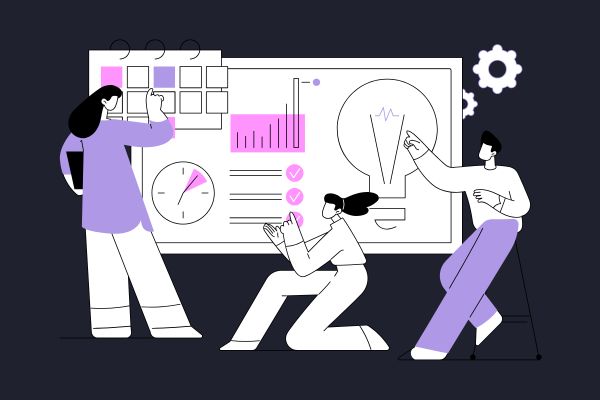Last Updated on April 14, 2025 by Becky Halls
When it comes to improving your website’s visibility and ranking on search engines, mastering onpage SEO and off page SEO is essential. These two pillars of search engine optimization work together to enhance your website’s performance and credibility, but they focus on different aspects. Onpage SEO and off page SEO are like two sides of the same coin: on-page optimization ensures your website is technically sound and provides a great user experience, while off-page efforts build your website’s authority and reputation across the internet.
In this guide, we’ll explore what makes onpage SEO and off page SEO unique, why both are critical to your SEO strategy, and how to leverage their combined power to achieve top rankings. Whether you’re optimizing your content, refining your site’s structure, or building quality backlinks, this article will equip you with the knowledge and tools to drive meaningful results.

What Is Onpage SEO?
On-page SEO refers to the optimization techniques applied directly to your website to improve its visibility in search engine results pages (SERPs). This includes:
- Content Quality: Your content should be original, valuable, and aligned with user intent. High-quality content increases dwell time and reduces bounce rates, both of which are ranking factors.
- Keyword Optimization: Integrate target keywords naturally into your content, headings, and metadata. Avoid keyword stuffing, which can lead to penalties.
- Meta Tags: Write compelling title tags and meta descriptions to improve click-through rates.
- Internal Linking: Link to other pages on your site to guide users and distribute link equity.
- Image Optimization: Compress images and use descriptive alt text to enhance load speed and accessibility.
? Pro Tip: New tools like PageTest.ai allow you to A/B test headlines, CTAs, and descriptions to identify what resonates best with your audience.
What Is Off Page SEO?
Off-page SEO focuses on building your website’s authority and trustworthiness through external activities. It’s all about how other websites perceive and interact with your site. Key components include:
- Backlinks: Quality backlinks from reputable sites signal to search engines that your content is valuable and trustworthy.
- Social Signals: Shares, likes, and mentions on social media can indirectly boost SEO by driving traffic to your site.
- Guest Posting: Writing content for other websites helps you gain exposure, credibility, and backlinks.
- Brand Mentions: Unlinked brand mentions can also contribute to your site’s authority.
? Pro Tip: Use tools like Ahrefs and SEMrush to analyze competitor backlinks and identify opportunities to build your link profile.
Why Are Both Important?
On-page SEO ensures your website is well-optimized and user-friendly, while off-page SEO builds its credibility and authority in the eyes of search engines. Together, they create a synergistic effect, amplifying your site’s visibility and driving organic traffic.
For example, on-page SEO might optimize a blog post for specific keywords, while off-page SEO ensures that high-authority sites link to that post, boosting its ranking potential.
Comparison Table: Onpage SEO vs Off Page SEO
| Aspect | Onpage SEO | Off Page SEO |
|---|---|---|
| Focus | Website content and structure | External factors (backlinks, social proof) |
| Key Techniques | Keywords, meta tags, internal linking | Backlinks, guest posts, social signals |
| Control | Full control | Limited control over external factors |
| Purpose | Optimize user experience and relevance | Build authority and credibility |
| Tools | Yoast, PageTest.ai, Google Analytics | Ahrefs, SEMrush, Moz |
How to Combine Onpage SEO and Off Page SEO
- Build a Solid Foundation
Start with on-page SEO by ensuring your site has fast load times, mobile responsiveness, and well-structured content. - Leverage High-Quality Content
Create valuable, shareable content that attracts backlinks naturally. - Establish Relationships
Network with industry leaders for guest posting and backlink opportunities. - Monitor Performance
Use tools like Google Analytics and Ahrefs to track on-page metrics and backlink profiles.

Advanced Tips for Onpage SEO and Off Page SEO
Advanced Onpage SEO Tips
- Implement Schema Markup for Rich Results
Schema markup, also known as structured data, helps search engines better understand your content and display rich snippets in search results. These snippets can include star ratings, product prices, FAQs, and more, making your listing stand out.- Example: For a recipe blog, use schema markup to display cooking times, calorie counts, and user reviews directly on the SERP.
- Tools to Use: Google’s Structured Data Markup Helper or plugins like Rank Math and Yoast.
- Optimize for Voice Search
With the rise of voice-activated devices like Google Assistant and Alexa, tailoring your content for conversational queries is key. Focus on long-tail keywords and question-based phrases.- Example: Instead of optimizing for “best pizza,” use “Where can I find the best pizza near me?”
- Use LSI Keywords to Improve Context
Latent Semantic Indexing (LSI) keywords help search engines understand the broader context of your content. These are related terms and phrases that enhance keyword relevance.- Example: For the keyword “digital marketing,” include terms like “content strategy,” “SEO tools,” and “social media campaigns.”
- Focus on Core Web Vitals
Core Web Vitals are crucial metrics for user experience, and Google uses them as a ranking factor.- Largest Contentful Paint (LCP): Reduce image sizes and use a content delivery network (CDN) for faster load times.
- First Input Delay (FID): Minimize JavaScript to ensure your site is responsive.
- Cumulative Layout Shift (CLS): Avoid unexpected layout changes by specifying image dimensions and using stable ads.
- Utilize AI-Powered Tools
Tools like PageTest.ai can help you A/B test headlines, CTAs, and descriptions to see which versions perform better. This data-driven approach takes the guesswork out of optimization.

Advanced Off Page SEO Tips
- Diversify Your Backlink Sources
Don’t rely solely on one type of backlink. A healthy backlink profile includes:- Editorial Backlinks: Links earned naturally through high-quality content.
- Guest Posts: Articles you write for other authoritative websites in your niche.
- Niche Directories: Links from industry-specific directories or forums.
- Social Media Mentions: Links shared on social media platforms that drive traffic and build credibility.
- Leverage Influencer Marketing for Backlinks
Collaborate with influencers in your industry to promote your content and earn backlinks. Influencers have established audiences and credibility, making their links highly valuable.- Example: Partner with a well-known food blogger to share your restaurant’s menu, earning a backlink from their high-authority site.
- Monitor and Improve Your Link Profile
Regularly audit your backlinks to ensure they are high-quality and relevant. Remove toxic or spammy links that could harm your site’s reputation.- Tools to Use: Ahrefs, SEMrush, or Google Search Console’s “Disavow Tool.”
- Focus on Local SEO
If you operate a local business, off-page efforts should include building links from local directories, chambers of commerce, and regional blogs.- Example: Get listed on Google My Business and earn links from local news outlets.
- Build Relationships Through Outreach
Networking with other site owners and bloggers can open opportunities for collaborations, guest posts, or co-marketing campaigns. Personalized outreach emails can go a long way in establishing valuable connections. - Engage on Social Media
Actively share your content on social platforms and engage with your audience. Although social signals are not direct ranking factors, they can drive traffic and create opportunities for backlinks.- Example: Share a viral infographic on LinkedIn that links back to your blog post.
- Participate in Online Communities
Join forums, Reddit threads, and Quora discussions relevant to your industry. Provide helpful answers and include links to your content when appropriate.- Pro Tip: Avoid being overly promotional. Focus on adding value to the discussion.
By integrating these advanced techniques into your onpage SEO and off page SEO strategies, you’ll create a well-rounded approach that improves your site’s rankings, visibility, and user engagement. Staying proactive and using the right tools ensures your SEO efforts deliver long-term results.
Conclusion
Mastering onpage SEO and off page SEO is critical for building a successful digital presence. On-page optimization lays the groundwork by making your site user-friendly and search-engine friendly, while off-page efforts amplify its reach and authority. Together, these strategies form the backbone of an effective SEO plan.
? Next Steps: Dive deeper into related topics like semantic SEO with our article on “Google Search Semantics” to further enhance your optimization efforts.



